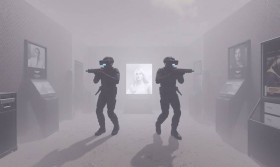Voice Acting: Which Performance Is Cringe?
Introduction
Voice acting is an art form that brings characters to life through vocal performance. Whether in animation, video games, or dubbing, a great voice actor can make a character unforgettable. However, not all performances hit the mark—some fall into the realm of "cringe," where the delivery feels forced, unnatural, or outright awkward.
But what makes a voice performance cringe-worthy? Is it bad direction, poor acting, or simply a mismatch between voice and character? In this article, we’ll explore the elements that contribute to cringe in voice acting, examine infamous examples, and discuss how to avoid such pitfalls.
What Makes a Voice Performance Cringe?
Several factors can turn a voice performance from compelling to cringe:
1. Overacting or Forced Emotion
Some voice actors push too hard, making their delivery sound exaggerated rather than authentic. Over-the-top screaming, unnatural pauses, or melodramatic line readings can break immersion.
Example: Some anime dubs suffer from this when actors try too hard to match the original Japanese intensity, resulting in awkward deliveries.
2. Poor Vocal Matching
A voice that doesn’t fit the character’s age, personality, or appearance can be jarring. Imagine a gruff warrior with a high-pitched, nasally voice—it just doesn’t work.
Example: Early video game voice acting often had mismatched voices, like Resident Evil (1996), where stiff performances became unintentionally funny.
3. Lack of Nuance
Great voice acting requires subtlety—tiny inflections, breathing patterns, and emotional shifts. A flat or monotonous performance feels robotic and unconvincing.
Example: Some AI-generated voices in games or apps lack human emotion, making them sound stiff and unnatural.
4. Bad Lip-Sync in Dubbing
When dubbed dialogue doesn’t match mouth movements, it creates an uncanny disconnect. Even a great performance can feel "off" if the timing is wrong.
Example: Many older anime dubs suffer from this, where the English script doesn’t align with the animation.
5. Trying Too Hard to Be "Cool" or "Edgy"
Some performances aim for a "badass" tone but end up sounding forced or cheesy. Overusing growls, whispers, or unnatural speech patterns can backfire.
Example: Some video game protagonists (Devil May Cry 3’s early English dub) were criticized for sounding overly dramatic.
Infamous Cringe-Worthy Voice Performances
Let’s look at some notorious examples where voice acting missed the mark:

1. The Legend of Zelda: CD-i Games (1993)
The infamous Zelda CD-i games featured stilted, awkward voice acting that became meme-worthy. Lines like "I wonder what’s for dinner?" were delivered with bizarre inflection.
2. Resident Evil (1996)
The original Resident Evil had notoriously stiff voice acting, with lines like "Jill sandwich" becoming iconic for all the wrong reasons.
3. Sonic the Hedgehog (2006)
The voice direction in Sonic ‘06 was widely mocked, with exaggerated deliveries and awkward pauses making scenes unintentionally funny.
4. Dragon Ball Z Early Dubs
Early English dubs of DBZ were criticized for over-the-top screaming and unnatural dialogue changes (e.g., "Over 9000!" meme).
5. The Room (2003)
While not a video game or anime, The Room’s voice acting (especially Tommy Wiseau’s) is a masterclass in cringe—unnatural pauses, odd emphasis, and stilted delivery.
How to Avoid Cringe in Voice Acting
Not every performance can be perfect, but these tips can help minimize cringe:
1. Understand the Character
A voice actor should study the character’s personality, backstory, and emotions to deliver a believable performance.
2. Natural Delivery Over Exaggeration
Unless the role demands it (e.g., comedy), subtlety often works better than forced intensity.
3. Proper Direction
A good voice director can guide actors to avoid awkward deliveries and ensure consistency.
4. Matching Lip-Sync in Dubs
Localization teams should adapt scripts to fit mouth movements naturally.
5. Avoid Overused Tropes
Not every villain needs a deep growl, and not every hero needs a generic "cool guy" voice. Originality helps.
Conclusion: The Fine Line Between Great and Cringe
Voice acting is a delicate balance. A performance can be powerful with the right emotion, timing, and authenticity—or it can fall into cringe if it feels forced, mismatched, or unnatural. While some bad performances become unintentional comedy gold, the best voice acting immerses the audience seamlessly.
What’s your take? Which voice performances do you find cringe-worthy, and which ones do you love? Let’s discuss!
Tags: #VoiceActing #Cringe #Animation #Dubbing #Gaming #Performance #Acting #Anime #VideoGames


















